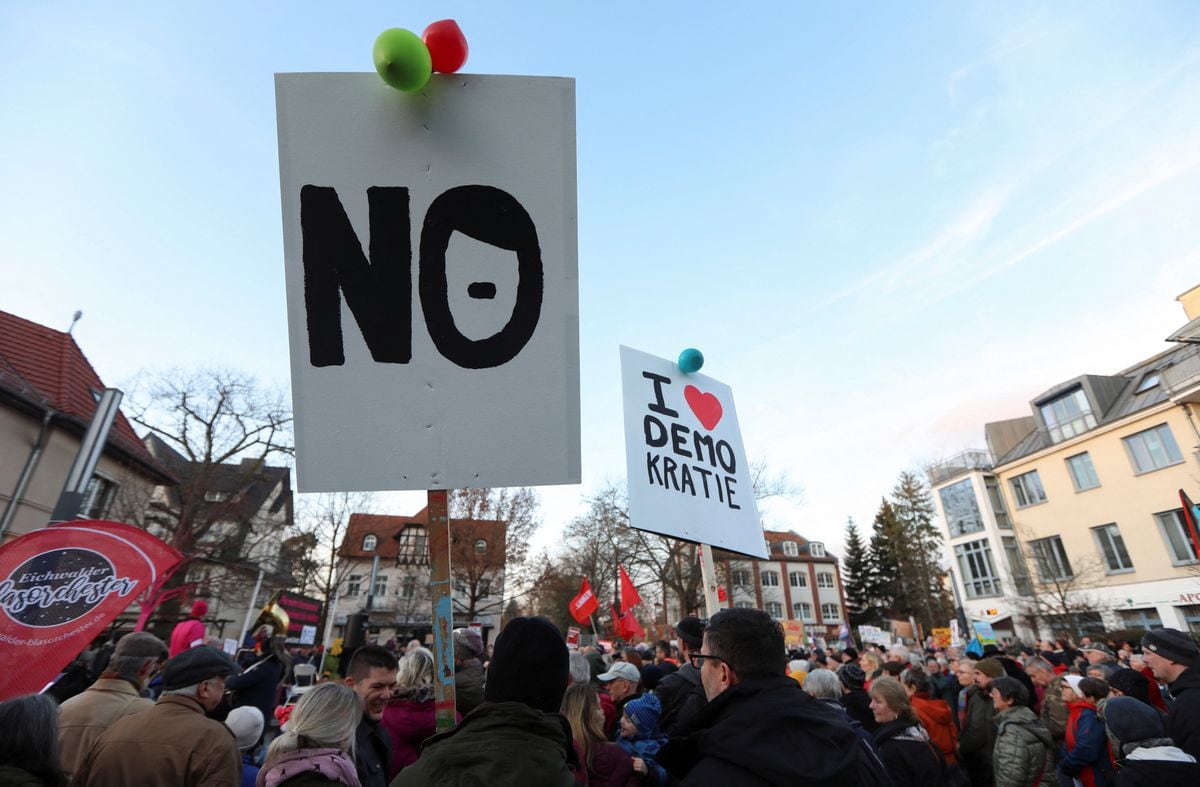All polls predict Trump's more than likely victory in the next US presidential election, as well as a considerable increase in the vote for far-right parties in the European elections.
It seems that we have entered, thus, a populist moment similar to that of 2016, when the tycoon took the presidency and Brexit completely disrupted the European project.
The most extraordinary thing, however, is not only that similar phenomena can continue to be replicated—with Le Pen at the door, for example—but that we have not found the necessary instruments to counteract them.
What's more, many of the proposals of these groups are increasingly gaining influence in conservative parties on the continent and also in some social democrats, as witnessed by the turn of the Danish socialist party on the immigration issue.
Or even in far-left parties, as in the very promising German
Die Linke
split led by Sahra Wagenknecht.
An ideological option fades away and an attempt is made to breathe some life into it by resorting to the dialectical arsenal of his supposed great opponent.
If, as Gramsci stated, the key to political success is the search for hegemony in discourse, there is no doubt that the extreme right is not wrong in its strategy, at least in everything related to the supposed “migratory invasion.” and to the demonization of established politics.
If this is so, as I say, it is because something is missing in the attempts to undertake an adequate defense of what had until now been the ideological field that supported the liberal elements of democracy.
The strategic success of populism consisted of presenting all its rivals as an undifferentiated group against which they established themselves as the only alternative, as the
authentic
representatives of national interests.
The simplicity of their slogans facilitated the establishment of a tribal, emotionalized and almost exclusively identity-based politics.
Faced with it, its adversaries presented themselves either as mere managers of a complex systemic framework, or—especially in the versions of the
woke
left —as defenders of a fractional and divisive identitarianism.
Let's not fool ourselves, in these moments of return of
Realpolitik,
national identity has no rival.
Even more so when those in front of him also become entangled in particularisms of various kinds and compete with each other to gain a foothold in the electoral market or, if necessary, when his previous rhetorical abomination of populists is transmuted into acceptance when they need them to gain access. to the government.
And this last thing only reinforces the idea that, in effect, they are not guided by the principles of which they boast so much, but by blessed power.
Another turn of the screw in the distrust of democratic politics.
What to do then?
There is no clear solution when the autonomy of the political is reduced everywhere, when we return to Hobbesian fears for security and the old consensus around our normative foundations begins to falter.
And this is the decisive factor.
Not in vain, what causes us to reject these movements is their illiberal dimension.
But is there anyone there who really defends the necessary survival of the liberal elements of democracy?
My impression is that they are increasingly perceived as a hindrance rather than the true budget of any democratic Government.
Follow all the information on the elections in the United States in
our weekly newsletter
.
Subscribe to continue reading
Read without limits
Keep reading
I am already a subscriber
_

